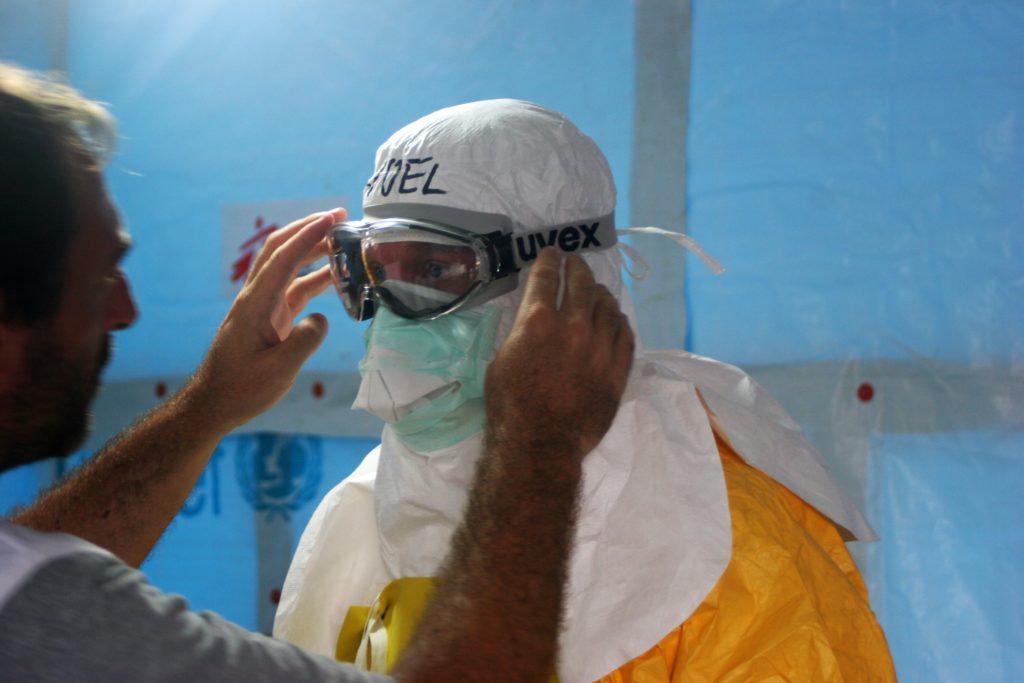Officials in Guinea declared a new Ebola outbreak in the rural community of Gouéké in N’Zerekore prefecture on Sunday, February 14 after at least three infected people have died in recent weeks and four more were confirmed to be infected. This comes five years after the country was declared Ebola-free in 2016.
Ebola virus disease (EVD) is a deadly disease with occasional outbreaks that occur primarily on the African continent. The virus spreads to people initially through direct contact with the blood, body fluids, and tissues of animals. It then spreads to other people through direct contact with body fluids of a person who is sick with or has died from EVD.
Symptoms of EVD include fever, aches and pains, such as severe headache, muscle and joint pain, and abdominal (stomach) pain, weakness and fatigue, gastrointestinal symptoms including diarrhea and vomiting, abdominal (stomach) pain, and unexplained hemorrhaging, bleeding, or bruising.
According to health officials in the country, the outbreak can be traced back to a funeral held in Gouecké in early February for a nurse from a rural health facility who died from the virus.
“The nurse was likely infected by a patient,” the head of the National Agency for Health Security, Sakoba Keita told reporters in Conakry on Sunday. “We’re looking for that patient now.”
Six people who attended the funeral on February 1 reported Ebola-like symptoms. Two of them have died and the other four have been hospitalised. In total, this marks three confirmed deaths and seven infections thus far.
The agency has called for all suspected cases to be isolated and for an investigation to identify other suspected cases and identify all contacts that need to be isolated.
They will also accelerate the acquisition of the Ebola vaccine from the World Health Organisation (WHO).
“The government reassures the people that all measures are being taken to stem this epidemic as soon as possible. It calls on the populations of affected areas to respect hygiene and prevention measures and to report to the health authorities in the presence of evocative signs (fever, diarrhea, vomiting and bleeding),” reads a statement from the agency.
WHO staff are already on the ground to assist in setting up testing and treatment facilities. The organisation is also working with health authorities in neighbouring countries Liberia and Sierra Leone to investigate and evidence of cases there, as the epicenter of the outbreak is in a rural community near the border.
From 2014 to 2016, Guinea, Sierra Leone, and Liberia were all part of the world’s worst recorded Ebola outbreak since the virus was first identified in 1976. It is believed to have originated from bats in December 2013.
The outbreak started in Guinea and then moved across land borders to Sierra Leone and Liberia. More than 28 000 people were infected and over 11 000 died during this time period, according to the Centers for Disease Control and Prevention (CDC).
In 2018, over 2200 people died in a separate Ebola outbreak in the Democratic Republic of Congo. Two more ebola deaths were recently reported in the country in early February 2021.
Picture: Pexels

